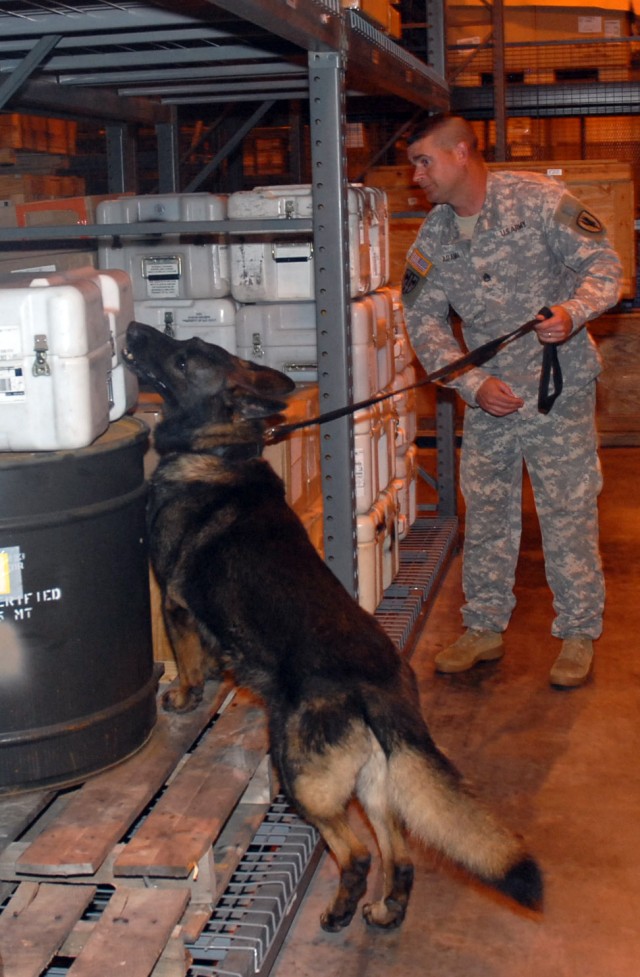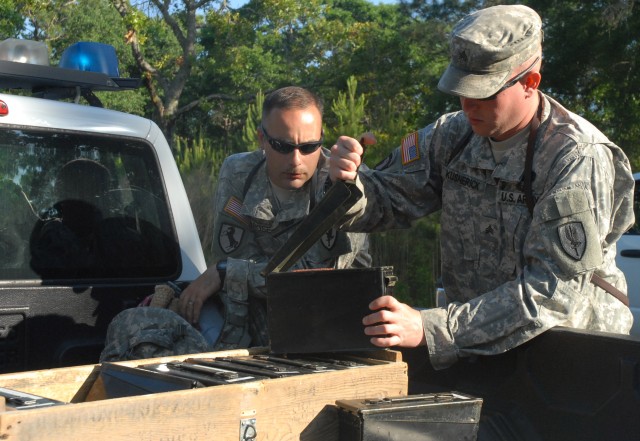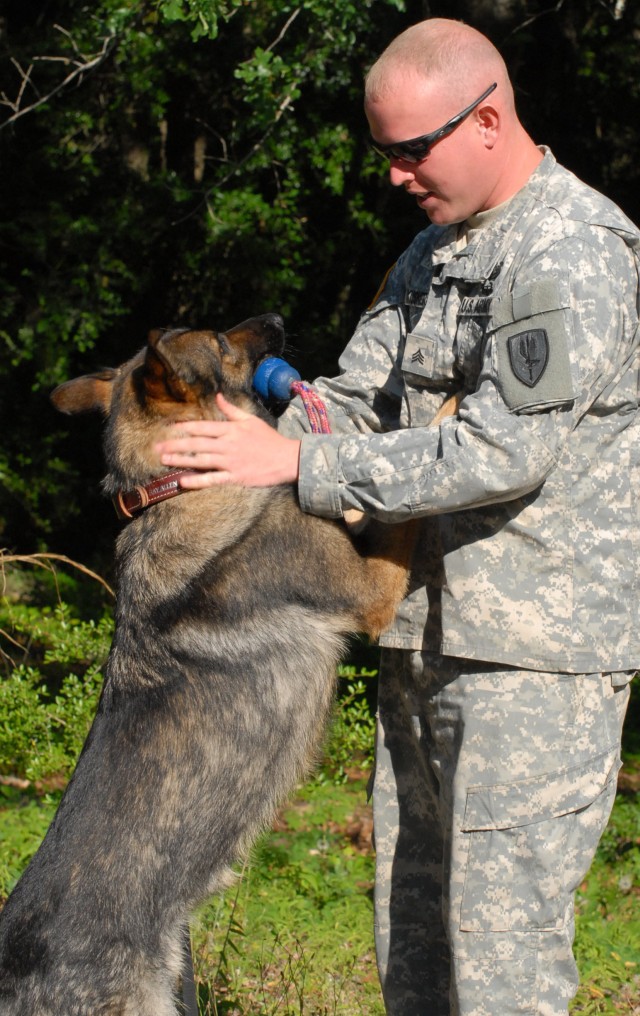FORT RUCKER, Ala. -- It takes a special breed of Soldier to become a military working dog handler, and the Soldiers of the 6th Military Police Detachment, K-9 section, fit the bill.
All military working dog handlers volunteer for their positions and go through a screening process.
A potential MWD handler has to have a favorable criminal records check, a secret clearance and meet with the kennel master, said Sgt. 1st Class Timothy Timmins, 6th Mp Det., K-9 Section, kennel master.
"The most important thing is that the candidate have a genuine love of dogs," Timmins said.
Spc. Daniel Wilkers, MWD handler and new addition to the Fort Rucker team, realized he wanted to work with dogs when he was deployed to Iraq.
"I saw handlers working with dogs and thought it would be nice to deploy with a dog and support the mission," Wilkers said. "So when I got back I just kept requesting to be a dog handler."
If accepted, potential handlers will go to Lackland Air Force Base, Texas, for training.
The training at Lackland is three months long and teaches the basics of becoming a dog handler. When a new dog handler comes to a unit, the handler has learned the basics of obedience, detection, patrol and how to properly care for a dog.
The military working dog handler has a massive responsibility to both his partner and fellow Soldiers.
"You really have to love your job," said Joe Barry, MWD handler. "There are a lot of extra hours you have to put in to be a successful working dog handler.
"There's the great aspect of the job, working with the dogs and accomplishing the mission," Barry said. "Then there's the not so great aspect; cleaning kennels, dealing with the animal waste and repetitious training until the dog finally gets it right."
In order to protect the Army's investment in the dogs, they get world class healthcare, said Timmins.
"The Army veterinarians are there primarily to take care of the military working dog," he said. "If the handler suspects anything is wrong with the dog a cough, sore leg, hip issues they (take the animal) to the vet for it."
There is an on-call veterinarian for the dogs and even an emergency room on post. There are strict guidelines for the health and welfare of the dogs, Timmins said.
The dogs are given daily head to toe checks, said Sgt. Stephen Rose, dog handler, who just returned from five months in Afghanistan.
"They are groomed and bathed on a regular basis," he said. "We check the animals for various bites, scratches or nicks that may become infected. We check their teeth, the pads of their feet ... anything that could incapacitate the dog."
Additionally, the handlers are required to do quarterly training with the veterinarians to learn how to provide first aid to the dog.
"Out in the field, they may not have easy access to a vet tech," Timmins said.
During the summer months, K9 units adjust their hours to train during cooler times of the day to avoid heat exhaustion.
Ultimately, the team is there to support the warfighter both at home and in the deployed environment.
"If you have to make a decision to save the guy you can't stand in your unit, or your dog ... you have to save the guy you can't stand," said Staff Sgt. James Black, primary narcotics custodian and working dog handler.
"The best thing about being a dog handler is being able to take a dog downrange and getting to keep everyone safe," said Staff Sgt. Quatdreecus Nealon, interim kennel master from July to April.
Most dog handlers have a love not only for the dogs they work with but also have dogs at home.
"In my experience, the handlers let their (own) dogs run all over them," said Rose. "Because you train a dog all day at work then the last thing you want to do when you get home is train another dog. My dogs at home 'sit' and that's about it."
"You have to be patient, there are some days when you go home frustrated, but the rewards are great when you and a dog are a team and proficient," Rose said.
Every Soldier at the K9 Section maintains they have the best job in the world, because they get to "play with dogs for a living."






Social Sharing